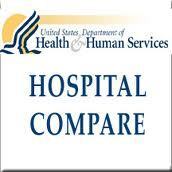'Hospital Compare' little help for risky surgery, study says
by
Brendon Nafziger, DOTmed News Associate Editor | October 18, 2010

A website designed to help Medicare patients find the best hospital may offer little help for those shopping around for the safest place for high-risk surgery, according to a new study.
For six common but risky surgeries, new research found little relationship between a hospital's reported mortality and complication rates and its compliance with quality process measures requested by the Centers for Medicare and Medicaid Services and posted on the Hospital Compare website.
"Despite the intentions of the CMS to provide patients with information that will facilitate patient choice of high-quality hospitals, currently available information on the Hospital Compare website will not help patients identify hospitals with better outcomes for high-risk surgery," wrote the authors, led by Lauren H. Nicholas with the Institute for Social Research at the University of Michigan.
Although patients might not be more likely to survive a surgery or have fewer complications at a hospital highly compliant with the quality measures, they could have shorter stays, the researchers found.
The study, which appears Monday in the Archives of Surgery, calls into question the utility of measures reported under the Surgical Care Improvement Project, an ambitious project launched in 2006 with the aim of lowering surgical complication rates by 25 percent by the end of this year.
A June study in the Journal of the American Medical Association also raised doubts about SCIP. That study found that although complying with all six SCIP infection control measures was associated with a lower risk of patients developing an infection after surgery, adherence on individual measures - how the data are currently reported - was not associated with better outcomes.
In the current study, researchers examined measures introduced for the first two years of CMS' Hospital Compare reporting, between 2005 and 2006. They took into account infection control measures, such as giving antibiotics shortly after surgery, as well as the administration of prophylaxis to prevent venous thrombosis.
Next, they compared reports on these measures with Medicare data for six common but often risky surgeries: abdominal aortic aneurysm repair, aortic valve repair, coronary artery bypass graft, esophageal resection, mitral valve repair and pancreatic resection.
The researchers said they found "little evidence of a consistent relationship between hospital compliance with processes of care and operative mortality rate."
